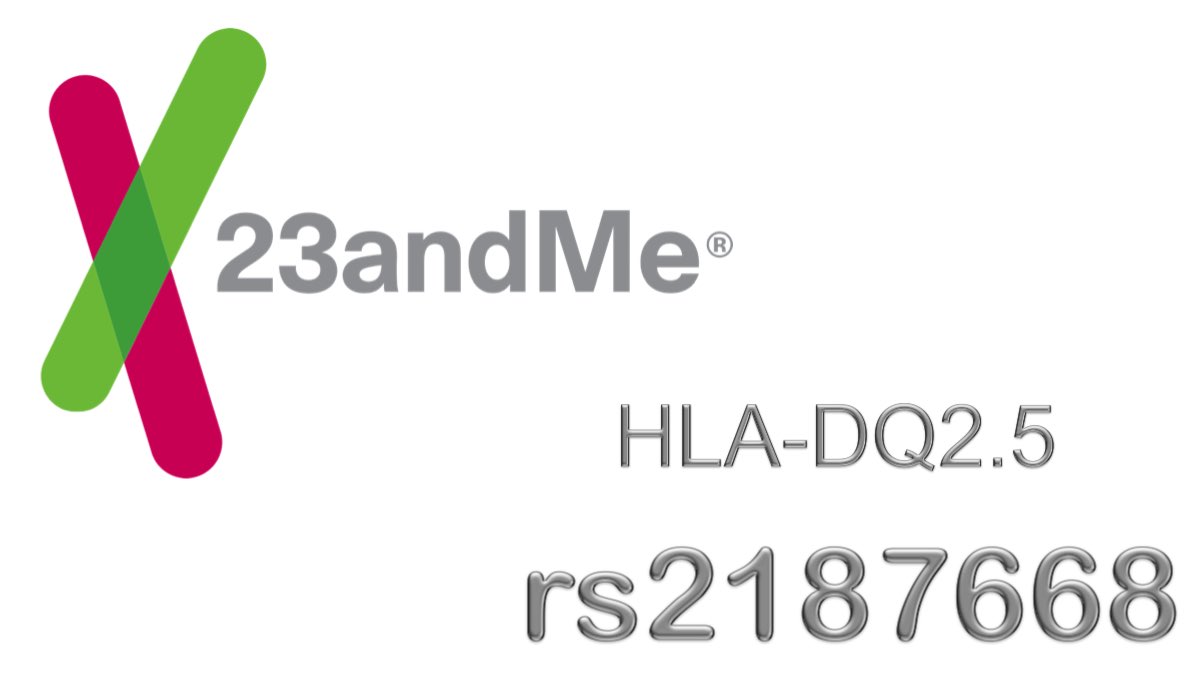DNA Testing for Celiac Disease
Not 100% accurate for Celiac Disease
If you take the DNA test from 123 and Me, you may find if you have celiac disease. That's a big maybe.
One of the tests that 123 and Me perform is the presence of the rs2187668 and rs7454108 genetic variants. These have been linked to the HLA-DQ2.5 and HLA-DQ8 haplotypes which are associated with a higher risk for celiac.
Okay, that's a lot to take in. Let's break it down...

rs2187668 and rs7454108
The rs2187668 genetic variant is associated with various traits including Celiac disease, Diastolic blood pressure, Collagenous colitis - which is a condition that affects your large intestine,
The rs7454108 genetic variant is associated with pemphigus vulgaris - which causes blisters on the skin, anti-neutrophil antibody associated vasculitis - a rare destruction and inflammation of the kidney, stomach, intestine and lungs.
Important Reminder - Just because rs2187668 and rs7454108 show up in the DNA test doesn't mean that person has any of the conditions. It basically means that some people that had those conditions had rs2187668 and rs7454108 in their DNA.
HLA-DQ2.5 and HLA-DQ8
In recent years, scientists have been able to identify two specific genes that tend to appear more common in people that have celiac disease. They put these into two groups of gene complexes known as human leukocyte antigen (HLA):
- HLA-DQ2.5 - which is found in about 90% of people confirmed to have celiac disease.
- HLA-DQ8 - which is found in eight percent of that same known celiac population.
HLA-DQA1 belongs to the group of genes with crucial roles in inflammation and autoimmunity. One variant in this gene has a robust association with celiac disease. 90% of the people that have celiac have the HLA-DQ2 gene.
The National Library of Medicine has a detailed report called, "HLA-DQ2.5 genes associated with celiac disease risk are preferentially expressed with respect to non-predisposing HLA genes: Implication for anti-gluten T cell response." It's a very technical report to understand the HLA-DQA1 link to an autoimmune disorder.
As for the HLA-DQ8 - I would highly recommend reading the HLA-DQ8 and the Genetics of Celiac Disease article. Its very well detailed about why the HLA-DQ8 is an important gene complex.
123 and Me Test Disclaimer
The legal department of 123 and Me put out the following disclaimer:
Each genetic health risk report describes if a person has variants associated with a higher risk of developing a disease, but does not describe a person's overall risk of developing the disease. The test is not intended to tell you anything about your current state of health, or to be used to make medical decisions, including whether or not you should take a medication, how much of a medication you should take, or determine any treatment.
The Celiac Disease genetic health risk report (i) is indicated for reporting of the rs2187668 variant in the HLA-DQA1 gene, which tags the HLA-DQ2.5 haplotype, and the rs7454108 variant near the HLA-DQB1 gene, which tags the HLA-DQ8 haplotype and (ii) describes if a person has variants associated with a higher risk of developing celiac disease. The variants included in this report are common in many ethnicities but are best studied in people of European descent.
Basically, if you have rs2187668 varient with the HLA-DQA1 gene, don't assume that you have Celiac Disease. Your best bet is to get tested for Celiac Disease.
